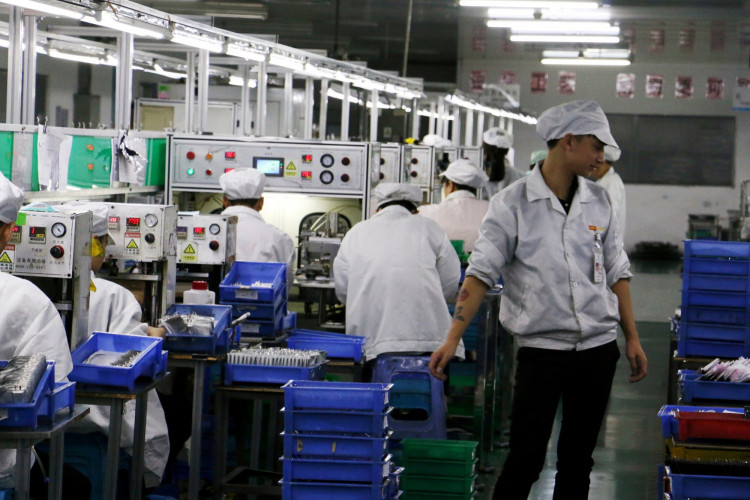China's manufacturing sector is expected to continue growing this year as the government accelerates its efforts to provide more reductions in value-added taxes and fees. Officials have revealed that the sector has managed to rack up around $340 billion in savings for the entire year of 2019.
The country's Ministry of Industry and Information Technology mentioned this week that it initially expected the total reductions in costs associated with taxes and fees for the manufacturing sector to be around $240 billion last year. However, its continued efforts to alleviate pressure have resulted in a figure significantly larger than its initial forecast.
The ministry pointed out that cost reduction in the manufacturing sector accounted for over 70 percent of the total reductions. This points to the government's continued efforts to bolster the country's manufacturing sector amid the onslaught of headwinds from the recent geopolitical turmoil.
Industry experts have pointed out that there is still room for further reductions in the coming months. China has so far already cut the value-added tax for the manufacturing sector by around 13 percent. In the first three quarters of last year, China managed to cut taxes worth around 1.97 trillion yuan for local manufacturing companies.
In early January, China's State Council had rolled out new measures to further enhance the business environment for local manufacturers. This included giving companies with annual revenues of more than 20 million yuan more favorable power policies. Companies that take advantage of this measure will enjoy greatly reduced power costs as they become linked to market-oriented and often state-run energy suppliers.
The efforts will continue the government's measures enacted in 2018, which included the mandate for state-run power providers to cut electricity prices by 10 percent. Last year, the State Grid Corp of China managed to meet its targets, effectively lowering its prices, resulting in total cost savings for companies of around 155.6 billion yuan.
The deputy director of the China Special Committee on Budget Performance, Zhang Yiqun, mentioned that the implemented and planned measures should help reduce financial burden in the manufacturing sector. The measures should also encourage companies to use their savings towards further investments in research and development, thus further driving innovation.
Apart from the tax cuts, China is also now looking into possible areas where it can further reduce business-related fees. Some of the areas of interest include fees involved in the use of transportation, telecommunications, and energy. The government hopes to further provide companies with better benefits to promote growth in the country's manufacturing industry.






